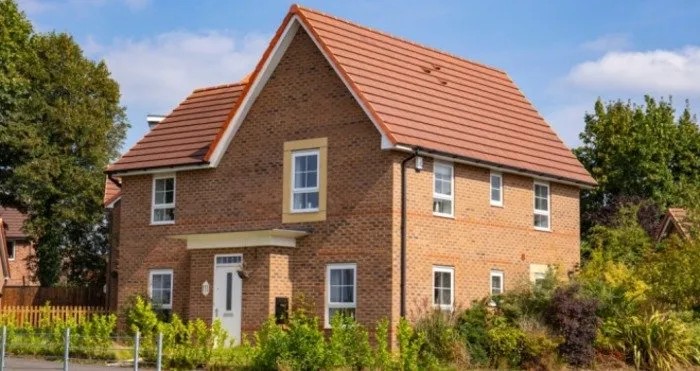Does a New Build Lose Value After Buying?

The question of whether newly built properties lose value after purchase is one of the most common concerns among UK property buyers. While the answer isn’t straightforward, property experts including estate agents in Felixstowe say understanding the factors that influence new build property values can help buyers make informed decisions and potentially protect their investment.
The New Build Premium:
New build properties typically command a premium price when first released to the market, often 10-15% above comparable existing properties in the same area. This ‘new build premium’ reflects several factors: the appeal of being the first owner, modern specifications, lower maintenance costs, and energy efficiency benefits. However, this premium can lead to an initial adjustment in value once the property is no longer ‘brand new’.
Think of it similarly to driving a new car off the showroom floor – there’s often an immediate depreciation. However, unlike cars, properties have the potential to recover and appreciate in value over time, depending on various factors including location, market conditions, and how well the development ages.
Short-Term Value Considerations:
In the first few years after purchase, newly built properties might experience what appears to be a slight decrease in value, though this isn’t universal. This initial adjustment typically occurs because:
The new build premium has been absorbed into the market The development is no longer the ‘newest’ in the area Early-stage snags and settling issues might become apparent The surrounding area might still be under development
However, this short-term value adjustment shouldn’t be confused with long-term performance. Many new builds begin to recover their value once the development is fully completed and the community becomes established.
Long-Term Value Prospects:
Over the longer term, well-built properties in good locations tend to perform similarly to the broader property market. Several factors can positively influence long-term value:
Modern building standards and energy efficiency become increasingly valuable Lower maintenance costs compared to older properties New infrastructure and amenities often follow major developments Community establishment and area maturation Integration with existing neighbourhoods
Quality and Developer Reputation:
The impact on value often correlates strongly with the developer’s reputation and build quality. Properties from well-respected developers who prioritise quality construction and after-sales service typically maintain their value better than those from less established builders. This emphasises the importance of researching developers and their track record before purchasing.
Location Remains Crucial:
As with any property, location plays a pivotal role in value retention. New builds in prime locations with good transport links, amenities, and schools typically perform better than those in less desirable areas. The success of the wider development and its integration with the existing community also significantly influences long-term value.
Market Timing and Economic Factors:
The broader economic environment and property market conditions at the time of purchase can significantly impact initial value retention. Buying during a property boom might mean paying a higher premium, potentially leading to a more noticeable adjustment when market conditions normalise.
Protecting Your Investment:
Several strategies can help protect the value of a new build investment:
Negotiate the initial purchase price, especially on off-plan properties. Ensure all snags are properly addressed during the warranty period. Maintain the property well from the outset. Keep all warranties and guarantees up to date. Consider the development’s completion timeline when buying. Research the developer’s track record and reputation.
The Energy Efficiency Advantage:
One significant factor working in favour of new builds is their superior energy efficiency. As energy costs rise and environmental concerns grow, the enhanced thermal performance and lower running costs of new builds become increasingly valuable. This aspect often helps maintain and enhance value over time.
Market Evolution:
The property market’s attitude toward new builds has evolved significantly. Modern construction methods, improved regulations, and higher building standards mean today’s new builds often offer genuine advantages over older properties. This changing perception helps support values, particularly as energy efficiency and maintenance costs become more important to buyers.
Future Considerations:
Several factors suggest new builds might perform better in terms of value retention in the future:
Increasing focus on energy efficiency and environmental impact. Growing preference for ‘ready to move in’ properties. Rising costs of retrofitting older properties. Stricter building regulations ensure better quality. Growing emphasis on warranty protection.
Conclusion:
While new-build properties might experience an initial adjustment in value after purchase, this shouldn’t be viewed as inevitable depreciation. The long-term performance depends on multiple factors, many of which can be evaluated before purchase. Quality developments in good locations, built by reputable developers, typically perform well over time.
For buyers, the key lies in thorough research before purchase, ensuring they pay a fair price that reflects both the new build premium and local market conditions. Understanding that property investment should generally be viewed as a long-term commitment helps put any initial value adjustments into perspective.
Remember, the true value of a property extends beyond its pure financial worth. The benefits of living in a new, energy-efficient home with modern specifications and lower maintenance requirements should be factored into the overall value proposition.




